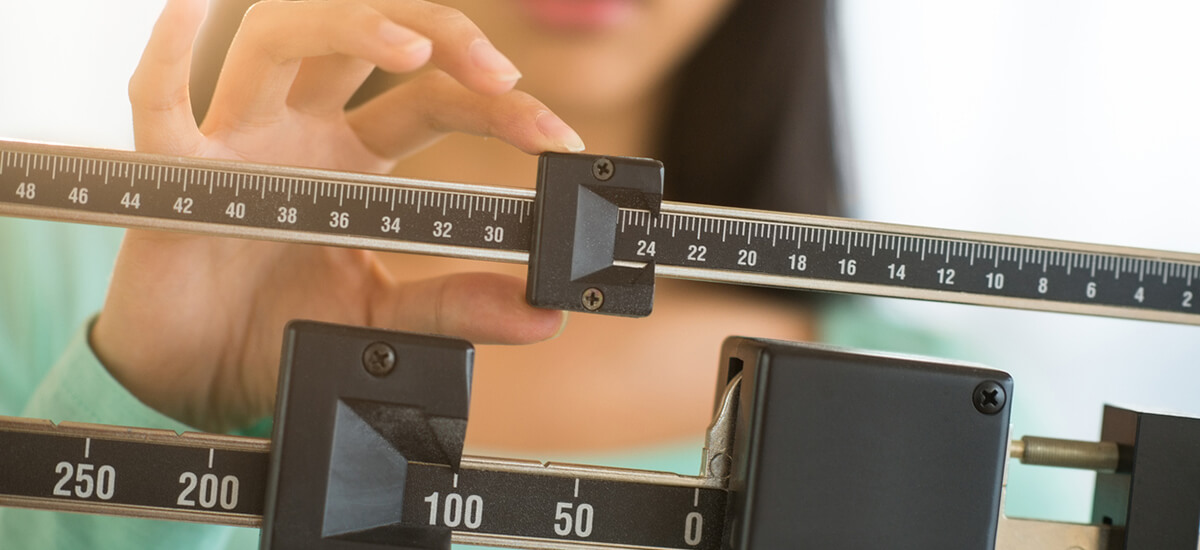Many people veer from happy to unhappy to utterly confused watching their weight go up and down each day. It’s not uncommon for our bodyweight to fluctuate from 1 to 5 pounds overnight.
The main culprit is water retention and there’s a multitude of things that can cause this. One pound equals just 15.34 fluid ounces of water or 450 ml. So, if you have just 1 liter of extra water in your system, that’s more than two pounds of extra weight.
Carbohydrates encourage your body to retain water, so the more carbs you eat, the more water you retain.
One gram of carbs tends to store 3-4 grams of water — so if you’re consuming more carbs in one meal than you can efficiently use, they’ll end up getting stored as glycogen and make you hold onto more water.
For example, eating 50 grams of carbohydrate will result in the storage of an additional 150-200 grams of water in the liver and muscles. That’s a total of 200-250 grams between the carbohydrate and water, which is half-pound (1 pound = 454 grams).
This water retention occurs because your kidneys retain sodium in response to carbohydrate consumption. Your body reacts to the higher sodium levels by storing more water to keep the sodium-blood concentration at a healthy level.
When you eat too much salt, the cells of your body must compensate by absorbing more water to balance out sodium concentrations.
Consuming 400 milligrams of sodium, the amount in a single gram of table salt, causes your body to retain an extra 4 cups of water, which equals roughly 2 pounds.
Eating fast food and processed food, which are high in sodium, can cause weight fluctuations of 2 pounds or more.
The best way to reduce water retention is to reduce your salt intake. According to the 2015-2020 Dietary Guidelines published by the US Government, adults should limit their sodium intake to 2300 mg (1 teaspoon) or less. However, on average, Americans eat more than 3,400 milligrams of sodium each day.
The second most important way to reduce water retention is to drink more water. This may seem counterintuitive, but it’s the solution. Drinking more water causes the excess salt to diffuse out of your cells, and it can then be flushed from the body by your kidneys and skin.
Ironically, skimping on your H2O results in water retention. If you’re not drinking enough water, your body holds onto every last drop inside to prevent severe dehydration. Dehydration causes your body to hoard water, which in turn causes bloating.
The National Academy of Medicine (NAM) recommends a total daily water intake of 120 ounces (15 cups) for the average adult male and 88 ounces (11 cups) for the average adult female.
Intense exercise also helps to quickly flush excess sodium out of the body.
In summary: cut your salt intake, drink more water each day and exercise intensely most days of the week.
Get in Motion. Stay in Motion.






